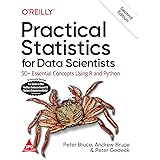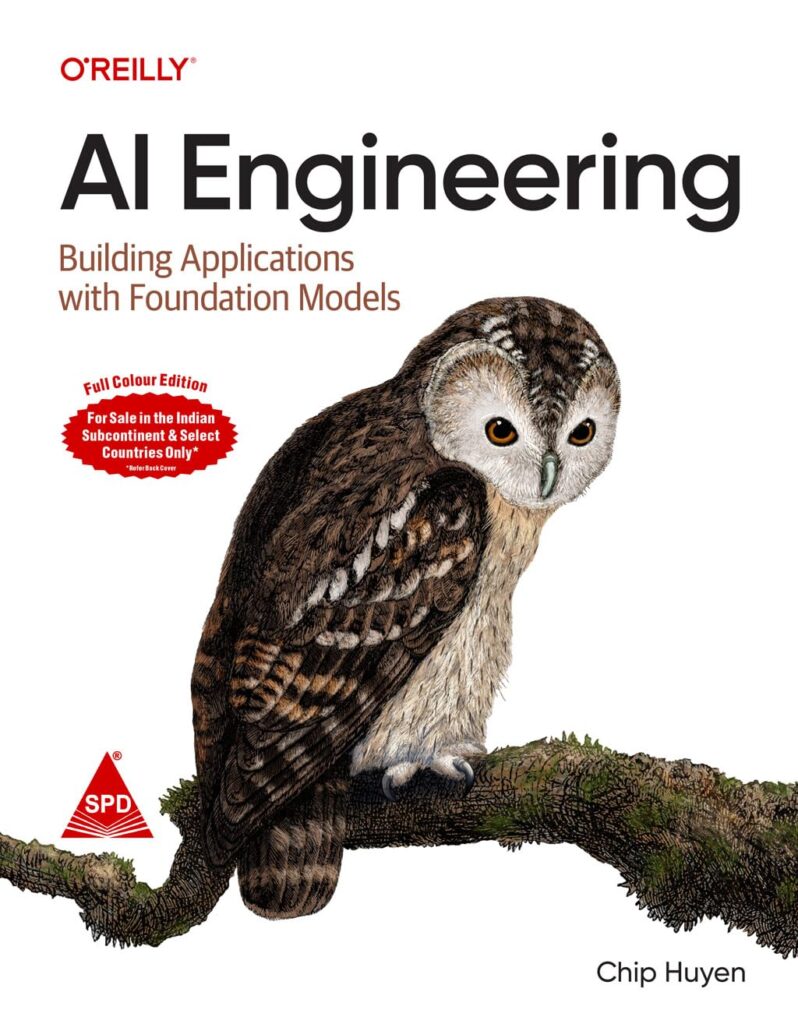Data Science Interview Preparation
Data Science Interview Preparation, Congratulations! You’ve Landed an Interview for a Data Scientist Position
Your dedication and hard work in acquiring essential data science skills, creating a portfolio, and actively applying for roles have finally yielded results: you have received an invitation for a data scientist interview!
Data Science Interview Preparation
This pivotal moment is an exciting yet challenging step in your career journey.
You probably have many questions swirling in your mind, such as:
- Should I conduct background research on the company?
- How much time should I dedicate to my interview preparation?
- What are the different types of interviews, and do they vary significantly?
- Which specific skills should I refine and sharpen before the big day?
Indeed, preparing for a data science interview involves multiple layers of preparation, and in this comprehensive guide, we will break down each step.
By the time you finish reading, you’ll be equipped with a complete toolkit designed to help you excel in any data science-related interview.
How to Prepare for a Data Science Interview: Conducting Background Research
The cornerstone of your preparation is research. Gaining a deep understanding of the company, its industry, and your potential interviewers is the first and most critical task.
This is a universal piece of advice for any job interview, but it holds particular weight in today’s competitive data science job market. Here’s how to set yourself up for success:
- Review the Job Posting: Revisit the specifics of the role you’ve applied for. Understand the requirements, desired skills, and company details so that you can confidently discuss them during your interview.
- Explore Their Website: Take time to investigate the company’s products and services. Select two offerings that intrigue you and brainstorm potential enhancements you could propose using your data science skills. Sharing your creative ideas during the interview can significantly enhance your attractiveness as a candidate.
- Analyze Their Competitors: Identify other players in the industry. Research what they offer and what differentiates them from the company you are interviewing with. Bringing fresh insights to the interview about how the company can outshine its competitors can set you apart.
- Understand Company Values and Culture: Reflect on whether the company’s values align with your own. Understanding their culture will help you present yourself authentically during your conversation. Convey your values subtly when introducing yourself.
- Investigate Recent Achievements: Stay updated on the company’s recent milestones, such as a surge in customer acquisition or participation in notable conferences. Discussing these accomplishments during your interview shows your genuine interest.
- Research Your Interviewer: If possible, find out who will be interviewing you and learn about their background. Their online profiles may reveal their interests, whether they contribute to open-source projects or engage in volunteer activities. This information can inform your communication approach during the interview.
Data Science Interview Preparation: Understanding Interview Types
Successfully navigating a data science interview requires you to be prepared for the various formats it can take.
Interviews can occur through different mediums (such as phone calls, video conferencing, or face-to-face meetings) and with different representatives from the company (HR personnel, management, or other data professionals).
General Interview Preparation
- Review Your Application Materials: Revisit your resume and cover letter, as you will likely be asked questions related to the information they contain. This will help you anticipate potential queries.
- Prepare Thoughtful Questions: Don’t forget that interviews are two-way conversations. Prepare insightful questions to ask about the company and the role; this demonstrates your engagement and initiative.
- Research Salary Expectations: Regardless of your experience level, familiarize yourself with industry salary standards. Knowing what to ask for can help you navigate compensation discussions.
- Practice Common Interview Questions: Be ready to tackle frequent inquiries such as, “Why do you want to work here?” or “What are your expectations from your future manager?”
- Conduct Mock Interviews: Practicing with a friend or mentor can help you identify any weak areas and boost your confidence.
- Dress Appropriately: Wear attire that’s comfortable yet aligns with the company’s culture. It’s wise to dress a notch above the company’s standard for corporate roles, while tech companies might have a more relaxed approach.
- Get Enough Rest: Don’t underestimate the power of a good night’s sleep before the interview. Being well-rested puts you in a strong position to perform well.
Phone Interview Tips
Phone interviews are often the first step in the interview process. To ensure success:
- Check Your Connection: Ensure a stable phone connection to avoid any disruptions.
- Choose a Quiet Environment: Inform those around you that you will be unavailable during your interview time.
- Charge Your Phone: Ensure your phone is fully charged to prevent any disruptions.
Video Call Interview Guidelines
Video interviews can be quite similar to phone interviews, but you’ll also need to consider visual elements:
- Ensure a Stable Internet Connection: A reliable connection is crucial for a smooth interview.
- Test Your Equipment: Ensure that your camera and microphone work effectively and test your video quality beforehand.
- Create a Professional Setting: Your background should be tidy and well-lit, allowing your interviewers to focus on you.
In-Person Interview Insights
If you progress to an in-person interview after phone or video calls, follow these tips for optimal performance:
- Know Your Route: Thoroughly plan how to get to the interview location, factoring in potential delays.
- Mind Your Body Language: Practice presenting yourself as friendly and approachable.
- Arrive at the Right Time: Aim to arrive 5-10 minutes early to demonstrate punctuality without appearing overly eager.
HR Interviews: What to Expect
An initial interview with an HR representative usually focuses on assessing your personality and interpersonal skills rather than technical knowledge. Anticipate questions such as:
- What are your strengths and weaknesses?
- Can you describe your biggest mistake and how you rectified it?
- How do you deal with negative feedback?
Preparing for the Technical Interview
Once you reach the technical interview stage, you’ll need to showcase a range of relevant skills, including SQL, Python, R, and machine learning. Here’s a summary of essential areas to focus on:
- Basic Coding Skills: Brush up on your coding abilities in Python, R, and SQL. Review common coding challenges and familiarize yourself with popular interview questions.
- Statistical Knowledge: While you don’t need to be a statistics expert, ensure you understand fundamental concepts such as mean, median, variance, and hypothesis testing. Practice common statistical questions in both Python and R.
- Data Cleaning Skills: Master the techniques required to clean and prepare data for analysis. Enroll in courses that focus on data cleaning in Python and R.
- Machine Learning Proficiency: Be prepared to discuss machine learning algorithms and answer related questions. Familiarize yourself with the most common machine learning techniques.
- Data Visualization Expertise: Learn to communicate data insights clearly and effectively for both technical and non-technical audiences. Explore tools like ggplot2 for R and matplotlib for Python.
Final Tips and Tricks for Success
Here are some additional tips to help you stand out during your data science interviews:
- Acknowledge Knowledge Gaps: It’s normal not to know certain skills. If asked to perform a task in R and your expertise lies in Python, explain how you would approach the problem with Python while expressing your eagerness to learn R.
- Take a Moment to Think: If a question is complex, don’t hesitate to request a moment to gather your thoughts. This demonstrates that you are serious about your answers.
- Frame the Role of a Data Scientist: Particularly in smaller companies, interviewers may not fully grasp the data scientist role. Emphasize how your contributions can enhance visibility and profitability.
- Understand Industry Nuances: Recognize that being a data scientist varies across sectors. Familiarize yourself with the specific dynamics of the industry you’re applying to.
- Embrace Rejections: Understand that rejection is part of the process in a competitive landscape. Use it as a learning opportunity to refine your skills and seek feedback for improvement.
Wrap-Up: Your Path to Success in Data Science Interviews
Now you are well-equipped with the knowledge and strategies to prepare effectively for your upcoming data scientist interview. In summary:
- Conduct thorough background research on the company, its industry, and who you’ll be interviewing with.
- Tailor your preparation to the type of interview format you will encounter, whether it is a phone, video, or in-person meeting.
- Familiarize yourself with the key skills and technical knowledge required in data science.
- Keep learning and leveraging resources to build your expertise continually.
Good luck with your interview preparation, and take the time to explore our dedicated guide on the top data scientist interview questions for candidates at all levels!
How to create a ggalluvial plot in R?
The Role of Data Science in Preventing Fraud
Arrange Data by Month in R with example
Add a Column from Another Table in Power BI






